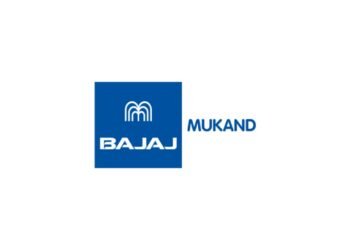In a dramatic turn of events, fugitive Indian businessman Mehul Choksi, notorious for his alleged role in the massive Punjab National Bank (PNB) scam, has found himself in deeper legal trouble. On April 19, 2025, a Mumbai court issued a non-bailable warrant (NBW) against him in connection with a Rs 55.27-crore bank fraud case involving Canara Bank and Bank of Maharashtra. This development comes just days after his arrest in Belgium on April 14, 2025, following India’s extradition request. Choksi, who has been evading Indian authorities since fleeing to Antigua and Barbuda in 2018, now faces intensified scrutiny as the Central Bureau of Investigation (CBI) and Enforcement Directorate (ED) pursue justice in one of India’s most high-profile financial scandals. His story is a stark reminder of the human cost of financial fraud, affecting banks, employees, and taxpayers, while highlighting the arduous journey to hold economic offenders accountable across borders.
Background on Mehul Choksi and the PNB Scam
Mehul Choksi, born in 1959 in Mumbai, was once a celebrated figure in India’s jewelry industry, leading the Gitanjali Group, a retail jewelry empire with thousands of stores. However, his reputation unraveled in 2018 when the Punjab National Bank (PNB) uncovered a massive fraud allegedly orchestrated by Choksi and his nephew, Nirav Modi. The duo is accused of defrauding PNB of approximately Rs 14,000 crore (about $1.8 billion) by colluding with bank officials to obtain fraudulent Letters of Undertaking (LoUs) and Foreign Letters of Credit (FLCs). These financial instruments allowed them to secure loans without proper collateral, leading to significant losses for the bank.
Choksi fled India on January 2, 2018, just before the scam came to light, and later surfaced in Antigua and Barbuda, where he had obtained citizenship in 2017. Since then, Indian authorities have been engaged in a prolonged effort to extradite him, facing numerous legal challenges, including Choksi’s claims of health issues and a controversial narrative of being “kidnapped” in 2021. His arrest in Belgium marks a significant step in this pursuit, but the new NBW adds another layer of complexity to his legal battles.
Details of the New Bank Fraud Case
In 2022, the CBI registered a First Information Report (FIR) against Choksi and others for allegedly defrauding a consortium of Canara Bank and Bank of Maharashtra to the tune of Rs 55.27 crore. The complaint, filed by Canara Bank’s chief general manager, named Bezel Jewellery (India) Private Limited, a company owned by Choksi, along with its directors—Choksi, Chetna Jayantilal Jhaveri, Dinesh Gopaldas Bhatia, and Milind Anant Limaye—as key accused. The FIR alleges that the company engaged in fraudulent transactions and defaulted on its payment obligations, siphoning off bank funds.
How the Fraud Was Allegedly Committed
| Aspect | Details |
|---|---|
| Loan Amount | Rs 30 crore from Canara Bank, Rs 25 crore from Bank of Maharashtra |
| Purpose | Working capital for manufacturing and selling gold and diamond jewelry |
| Alleged Misuse | Funds diverted to repay long-term borrowings of Gitanjali Gems Pvt Ltd |
| Transaction Irregularities | No business transactions routed through Canara Bank account |
The banks had sanctioned working capital limits under a consortium arrangement to support Bezel Jewellery’s operations. However, the CBI chargesheet reveals that the company misused these funds by diverting them to settle debts of Gitanjali Gems, another Choksi-owned entity. Notably, the company repaid Rs 18 crore of long-term borrowings to its parent company on the same day it availed the loan, and diverted Rs 10 crore from Canara Bank to the parent company. Furthermore, foreign remittances received for jewelry exports were used to reduce overdrawing in Gitanjali Gems’ cash credit account, rather than fulfilling the loan’s intended purpose.
Issuance of Non-Bailable Warrant
On April 19, 2025, the Esplanade metropolitan magistrate court in Mumbai issued a non-bailable warrant against Mehul Choksi in the Rs 55.27-crore bank fraud case, following a specific request from the CBI. The case had initially been handled by a CBI court, but on April 17, 2025, it was transferred to the magistrate court after the CBI determined that no public servants were implicated, rendering charges under the Prevention of Corruption Act inapplicable. The NBW adds to existing warrants against Choksi, including two issued in 2018 and 2021 for the PNB scam, intensifying pressure on the fugitive businessman as he navigates legal proceedings in Belgium.
Recent Arrest in Belgium
Choksi’s arrest in Belgium on April 14, 2025, near his residence in Antwerp, marks a pivotal moment in India’s efforts to bring him to justice. The arrest was executed based on India’s extradition request, supported by non-bailable warrants issued by a Mumbai court on May 23, 2018, and June 15, 2021, related to the PNB scam. Indian agencies, including the CBI and ED, are now working to formalize the extradition process under the extradition treaty between India and Belgium.
Choksi’s legal team, led by lawyer Vijay Aggarwal, has vowed to challenge the extradition, citing his ongoing cancer treatment and arguing that he is not a flight risk. They also claim the extradition request is politically motivated and that a trial in India may not be fair. This is not Choksi’s first encounter with law enforcement abroad; in 2021, he was arrested in Dominica under controversial circumstances, alleging he was kidnapped from Antigua. He was later deported back to Antigua, where he continued to resist extradition.
Implications and Challenges
The developments in Choksi’s case highlight the broader challenges of prosecuting economic offenders who flee India. The PNB scam and the new bank fraud case expose vulnerabilities in the banking system, where lax oversight and collusion enabled massive frauds. The financial impact extends beyond banks to taxpayers, as public-sector banks like PNB often require government bailouts to recover losses.
Efforts to recover defrauded assets are ongoing, with a special Prevention of Money Laundering Act (PMLA) court in Mumbai authorizing the monetization of Choksi’s assets worth over Rs 2,500 crore in December 2024. Properties, including flats and factories in Mumbai, have been handed over to the liquidator of Gitanjali Gems for restitution to victims. However, the recovery process is slow, and legal battles in multiple jurisdictions add further delays.
Extradition Hurdles
| Challenge | Description |
|---|---|
| Legal Delays | Choksi’s team uses health and political arguments to prolong proceedings |
| International Cooperation | Extradition treaties require extensive documentation and diplomatic efforts |
| Jurisdictional Issues | Choksi’s Antiguan citizenship and presence in Belgium complicate legal processes |
The extradition process is fraught with difficulties, as seen in Choksi’s prolonged stay in Antigua and his earlier arrest in Dominica. His attempts to influence legal proceedings, including allegations of bribing officials in Antigua and interfering with Interpol, have further complicated matters. While his arrest in Belgium is a step forward, the outcome of the extradition hearing remains uncertain, given his legal team’s aggressive defense strategy.
(India CSR)






















